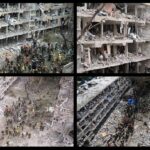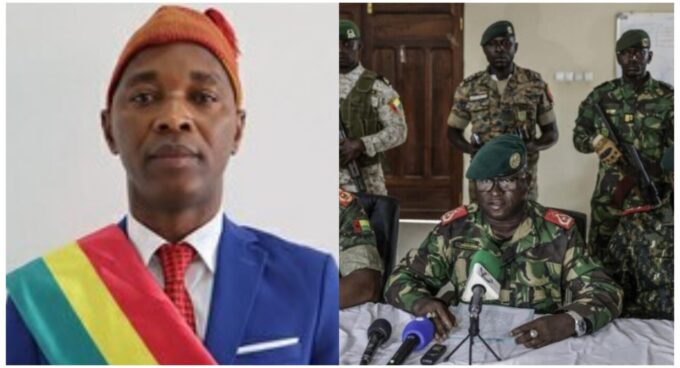The international community has reacted with outrage and alarm following Sunday’s U.S. military strikes against three Iranian nuclear facilities, with multiple governments and prominent figures condemning the action as a dangerous escalation that violates international law and threatens global stability.
Middle Eastern Nations Voice Strong Opposition
Iraq’s government spokesperson delivered a stern warning, stating the attacks “constitute a serious threat to security and peace in the West Asia region and pose significant dangers to regional stability.” The statement reflects growing concerns among neighboring countries about potential spillover effects from the escalating conflict.
Pakistan’s response was particularly fierce, with the chairman of the Senate defense committee declaring the strikes a “war crime” and “deliberate aggression.” In an unusually candid assessment, Pakistan’s foreign ministry accused the “Israeli lobby” of dominating American foreign policy and claimed President Trump had “deceitfully broken his promise not to start a new war.”
The Gulf Cooperation Council (GCC) nations offered more measured but equally critical responses. Saudi Arabia’s foreign ministry condemned the violation of Iranian sovereignty while calling for diplomatic solutions, a position echoed by Qatar and Oman. Egypt’s foreign ministry warned of “serious consequences for regional and international security and peace,” highlighting broader Arab world concerns about the conflict’s potential to destabilize the entire Middle East.
Iran’s Defiant Response and Legal Threats
The Atomic Energy Organization of Iran (AEOI) issued a scathing statement confirming attacks on its Fordow, Natanz, and Isfahan facilities. The agency emphasized that all sites operate under IAEA safeguards as part of the Nuclear Non-Proliferation Treaty (NPT), calling the strikes “brutal assault” conducted “under the indifference—rather the complicity—of the International Atomic Energy Agency.”
Iran vowed to pursue all available legal channels, stating: “The organization has placed on its agenda all necessary actions to defend the rights of the noble Iranian people, including legal follow-up measures.”
The declaration suggests Tehran may bring the matter before international courts while continuing its nuclear program in defiance of the attacks.
Western Backlash and Domestic U.S. Divisions
The strikes have exposed deep fractures in Western alliances and within American politics. United Nations Secretary-General António Guterres expressed grave concern, calling the action “a direct threat to international peace and security” that risks triggering a “spiral of chaos.”
In the U.S., Democratic lawmakers launched blistering attacks on the administration. Congresswoman Ilhan Omar denounced the “dangerous, reckless escalation,” while Representative Alexandria Ocasio-Cortez went further, calling for impeachment proceedings and warning the attack could “ensnare the U.S. for generations to come.”
House Speaker Nancy Pelosi joined the criticism, questioning the legality of military action taken without congressional approval.
Prominent foreign policy experts added their voices to the chorus of dissent. British-American journalist Mehdi Hasan labeled the strikes “a war crime and a violation of the UN Charter,” while former UN weapons inspector Scott Ritter provided technical analysis disputing the operation’s effectiveness, calling it a “limited attack” on mostly empty facilities.
Latin American Leaders Join Global Condemnation
The backlash extended across the Atlantic, with Latin American leaders expressing solidarity with Iran. Chilean President Gabriel Boric condemned the “violation of international law,” while Cuban President Miguel Díaz-Canel warned of “irreversible consequences.”
Bolivia’s Luis Alberto Arce delivered perhaps the strongest statement from the region, calling the attack “a breach of international law that endangers world peace.”
Strategic Implications and Future Concerns
Analysts note the strikes represent a significant escalation in U.S.-Iran tensions, with several worrying implications:
1. Nuclear Program Consequences: Despite the attacks, experts believe Iran retains both the capability and political will to reconstitute its nuclear program
2. Regional Groups Conflicts: Heightened risk of Iranian-backed groups escalating attacks against U.S. interests in Iraq, Syria and beyond
3. Diplomatic Fallout: Potential collapse of remaining nuclear negotiation frameworks and increased anti-American sentiment globally
4. Market Instability: Oil prices and global markets likely to experience prolonged volatility
As world leaders scramble to contain the fallout, the incident has already damaged U.S. credibility with traditional allies while potentially strengthening Iran’s position among non-aligned nations. With Tehran promising retaliation and Washington facing domestic and international condemnation, the situation threatens to evolve into one of the most serious international crises in recent years.















Leave a comment